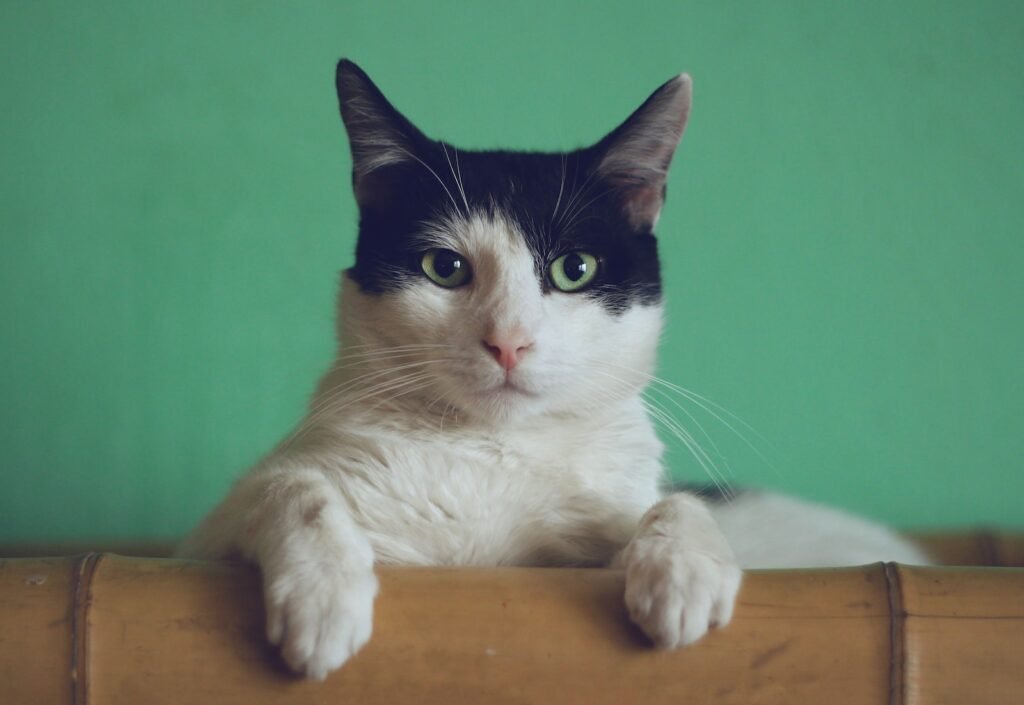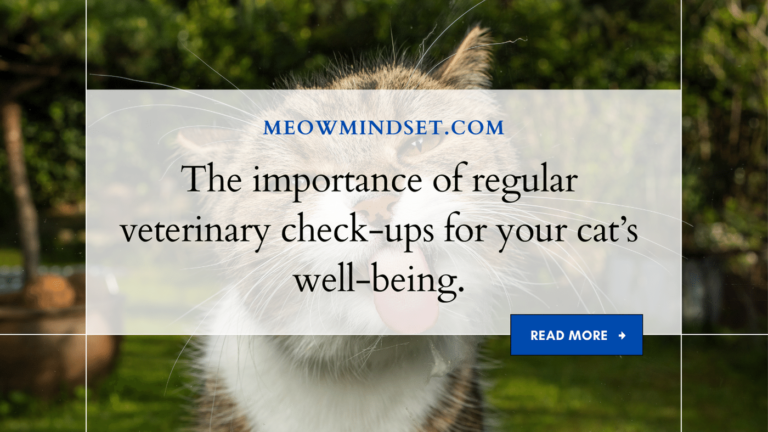Tips for managing stress and anxiety in cats.
Cats may be known for their elegant and carefree demeanor, but they can also experience stress and anxiety just like us humans. Whether it’s caused by a change in environment, separation anxiety, or an underlying medical condition, managing your furry friend’s stress levels is crucial for their overall well-being.
If you’re looking for effective ways to help your cat cope with anxious situations, then this post is perfect for you! We’ve compiled some essential tips and tricks that will have your feline feeling calm and content in no time. So put on some relaxing music and let’s dive into the world of cat-stress management together!
What is stress and anxiety in cats?

Stress and anxiety in cats can be caused by a variety of factors, including traumatic experiences, changes in home or family environment, health problems, and life events. Many cats respond well to stress-reducing measures, such as interactive playtime and plenty of exercise, though others may require more specialized care.
Here are some tips for managing stress and anxiety in cats:
MANAGE STRESS AND ANXIETY:
1] Provide plenty of exercise and activity. Exercise releases endorphins – natural pain relievers – which can help relieve stress. In addition, playing with or bathing your cat can provide a sense of calm and security.
2] Make sure the home environment is safe and secure. If your cat is prone to separation anxiety, keep him or her constantly close by by using a scratching post or fence as an outlet for energy. If possible try to avoid changes in the home environment that could cause greater stress, such as moving furniture or changing curtains.
3] Provide momentary relief with treats or toys that offer stimulation but don’t pose a threat (such as a rubber ball). Be sure to give these items only when your cat is calm and not when he or she is agitated (for example, during a scratcher frenzy). Toys should be rotated regularly so that your cat always has something new to look forward to.
4] Consult with a vet if your cat’s periods of agitation continue despite trying some of the above measures . Many cats experience temporary bouts of anxiety during their monthly cycle, and veterinary intervention can help to regulate this cycle.
Causes of stress and anxiety in cats
Stress and anxiety are common problems in cats. There are many causes of stress and anxiety in cats, but some of the most common reasons include changes in family dynamics, moving to a new home, new people or animals in the home, changes in routine, being left alone for long periods of time, going through surgery or illness, and other stressful events.
There are many ways to manage stress and anxiety in cats. Some tips for managing stress and anxiety in cats include providing plenty of toys and activity options for your cat, providing food and water when your cat seems anxious or stressed, trying to keep your cat’s environment calm and safe (by using appropriate furnishings, restricting access to areas where there is potential for chaos or fear), using non-violent communication with your cat to reassure them that you’re there for them (even if you can’t physically be there), and seeking professional help if the stresses are causing serious problems or distress.
Tips for managing stress and anxiety in cats
There are a few things you can do to help manage stress and anxiety in cats.
Here are five tips:
- Use specific words when giving commands. For example, instead of saying “stay” try “sit.” This will help your cat associate the word stay with a positive interaction instead of fear.
- Bring out toys and play with your cat regularly. this will help keep them active and distracted from thoughts of being alone or scared.
- Feed them frequently and offer plenty of snacks throughout the day. This will give your cat energy to fight off any negative emotions bottled up inside.
- Be affectionate with your cat during stressful times. Provide plenty of physical contact and engage in activities they enjoy, such as playing fetch or taking them for a walk.
Tips for Resolving Cat Issues

There are a few things you can do to help manage stress and anxiety in your cat. Make sure they have plenty of toys and playtime, keep their environment clean and quiet, offer them food and water in specific places, invest in a good quality cat mat or box, and provide positive reinforcement when they’re behaving well.
If your cat is constantly scratching or biting you, invest in a behavior modification program to help them address their anxiety.
How to Reduce Stress in Cats
Cats are understandably hypersensitive to environmental and stress factors, meaning that even small changes can have a significant impact on their well-being. Fortunately, there are several steps you can take to help manage stress in your cat and reduce anxiety levels.
Create a Comfortable Environment
One of the best ways to reduce stress and anxiety in cats is to create an environment that is comfortable and calm. If your cat is used to experiencing chaos everywhere they go, transitioning them to a new home or environment may be difficult and stressful.
Try setting up furniture in your home so that your cat has plenty of hiding places and places to relax. designate one or two areas as “cat zones” where they can roam free without fear of being disturbed, and make sure their environment is lighting-quiet so they can rest during the day.
Provide Appropriate Exercise
Regular exercise provides cats with physical activity and outlets for pent-up energy, which can help relieve stress. When possible, provide your cat with items such as scratching posts or toy boxes that he can use to get active; however, be careful not to overindulge him or push him too hard. Creating a safe space for him outside also offers an excellent option for exercise.
Feed Your Cat Appropriately
When it comes time to feed your cat, try to avoid giving them food or drinks when they’re feeling anxious or stressed out. Some cats will eat large amounts in order to remove any feelings of unease;
Ways to Cope with Anxiety in Cats
One of the most common issues pet owners face is managing stress and anxiety. Cats are notorious for being independent, deliberate animals that like to have their own space and be left alone. Unfortunately, this can lead to serious bouts of stress when they’re not given enough time to relax and decompress.
Here are some tips for coping with anxiety in cats:
1] Make sure your cat has plenty of toys and playtime. This will help tire them out and provide them with something to do when they’re feeling stressed. Toys can also be used as a way to practice distraction techniques should they start exhibiting worrying behaviors.
2] Provide them with a safe place to retreat if they feel overwhelmed or anxious. This could be an enclosed area in your home or a designated spot outdoors (depending on the cat’s personality). Make sure the area is dark, quiet, and free from distractions so your cat can focus on calming down.
3] Monitor their behavior closely in case you notice any worrying changes or symptoms associated with anxiety such as panting, restlessness, and refusal to eat or drink. If you feel like you need to take your cat to the vet for further evaluation, do so before anything gets out of hand!
Conclusion
Cats are amazing creatures and it is no wonder that they have earned the reputation of being one of the world’s favorite pets. However, like all animals, cats can experience stress and anxiety from time to time. In this article, we will discuss some tips for managing stress in cats and help you find ways to reduce their overall anxiety levels. We hope that this information will be useful in helping you better care for your furry friend night and day.
Managing stress in cats can be a difficult task, but with the right approach it can be done. As discussed in this article, some tips for reducing stress in cats include providing plenty of toys and playtime, changing their environment frequently, and using complementary therapies such as massage or acupuncture. Bottom line? If your cat is showing signs of stress, don’t hesitate to seek out help from a veterinarian or a qualified animal behaviorist.






